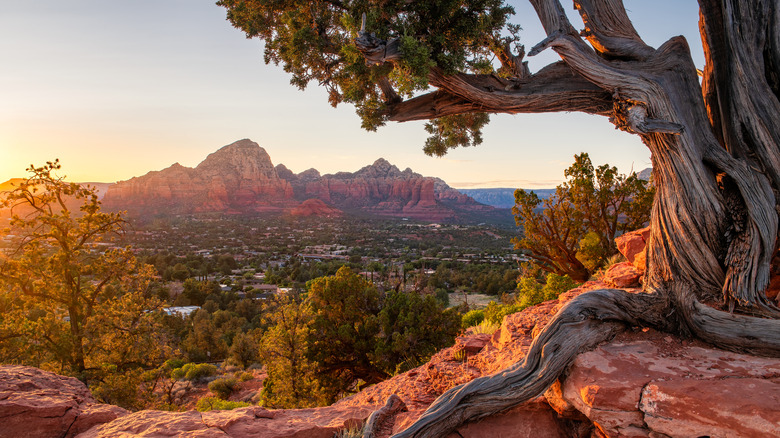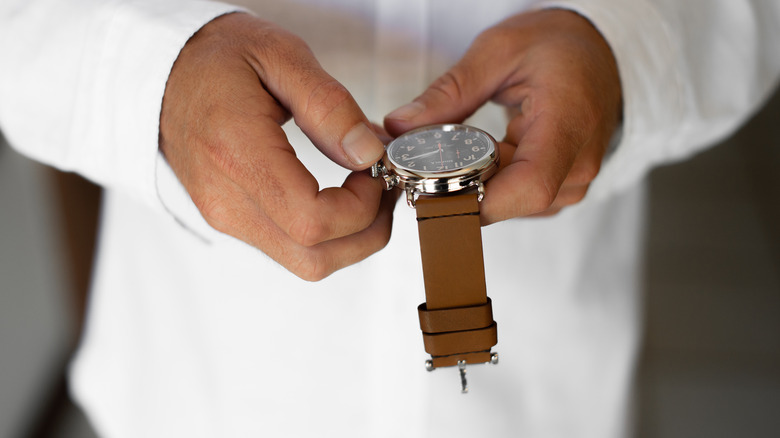The Only Two States In America That Don't Observe Daylight Savings (And Why)
It's one of the biggest debates in America, and you'll hear it each year: Daylight saving time (DST). "Should we continue to do it? Why do we do it? What if we all just boycotted the system and continued as normal?" These are some of the questions whispered in the streets, whether we're "springing forward" an hour or "falling back" an hour, depending on the season. Some people love the sunshine — the only way you'd get nearly 24 hours of daylight is by going to certain European destinations in summer — and some people prefer earlier nights. However, if you want to cut the confusion (and save the overseas airline ticket), two U.S. states simply don't comply with the rest of the nation: Arizona and Hawaii.
It sounds a bit random, since these states are quite literally an ocean apart, but it aligns with the premise of daylight saving time. The concept is to take advantage of daylight hours and conserve electricity and energy. If it stays light later, you won't necessarily need to use as many utilities in your house. Daylight saving time was established in the U.S. during World War II and was standardized later — so as the world evolves, it can feel a bit outdated.
Why are Arizona and Hawaii so unique?
In 1966, Congress passed the Uniform Time Act, but it allowed individual states to opt out if they wished. Arizona was one of those states. According to ASU News, the state participated from April to October 1967, then opted out beginning in 1968, citing its already hot climate. Yep, their reasoning was that simple. With summer temperatures soaring well above 100 degrees Fahrenheit, residents did not welcome an extra hour of daylight in the evenings. In fact, people plan tourism around escaping the Arizona heat, like journeying down walking trails in Madera Canyon. Residents even look forward to nighttime, so they can comfortably do activities when it isn't so hot. For that reason, Arizona remains on Mountain Standard Time year-round — except for the Navajo Nation in the northeastern part of the state, which observes daylight saving time to stay in sync with its neighbors.
Hawaii made a similar decision in 1967, opting out of daylight saving time, particularly because it's already situated so close to the equator, and there's minimal variation in sunrise and sunset times throughout the year. In short, changing the clocks would have little impact. Other U.S. jurisdictions that don't observe DST include American Samoa, Guam, Northern Mariana Islands, Puerto Rico, and the U.S. Virgin Islands. Heading out of America? Here's what you need to know about daylight saving time in other countries.

